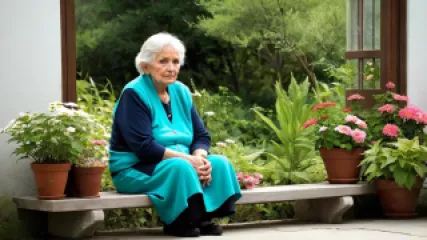Expert Insights: Effective Relaxation Techniques
1 year ago
Techniques for Relaxation
Fostering Resilience in Young Children: A Step-by-Step Guide
1 year ago
Childhood Resilience Building
Learning from Movie Scenes: Using Colors to Set the Mood in Interior Design
1 year ago
Psychology of Color in Interiors
Top 10 Strategies for Dealing with Unmet Expectations
1 year ago
Dealing with Disappointment
Top 10 Strategies to Manage Retirement Anxiety in Seniors
1 year ago
Retirement Anxiety
Overcoming Relationship Conflicts Through Couples Therapy Sessions Online
1 year ago
Navigating Relationship Conflicts
Expert Insights: Mind-Body Techniques for Relaxation
1 year ago
Techniques for Relaxation
Navigating Life's Transitions: A Personal Journey
1 year ago
Managing Transitions
The Ultimate Guide to the Benefits of Volunteering for Social Connections
1 year ago
Volunteering Benefits
Why Taking Mental Health Breaks Is Crucial for Recovery
1 year ago
Mental Health Break Importance
Mastering Mindfulness Practices for Relaxation
1 year ago
Techniques for Relaxation
10 Proven Strategies to Manage Retirement Anxiety
1 year ago
Retirement Anxiety
Unlock the Power of Mindful Listening: An Expert's Insights
1 year ago
Mindful Listening Benefits
The Ultimate Guide to Managing Depression in Elderly Individuals
1 year ago
Depression in Elderly
5 Powerful Lessons from "A Beautiful Mind" to Challenge Mental Health Stigma
1 year ago
Mental Health Stigma















